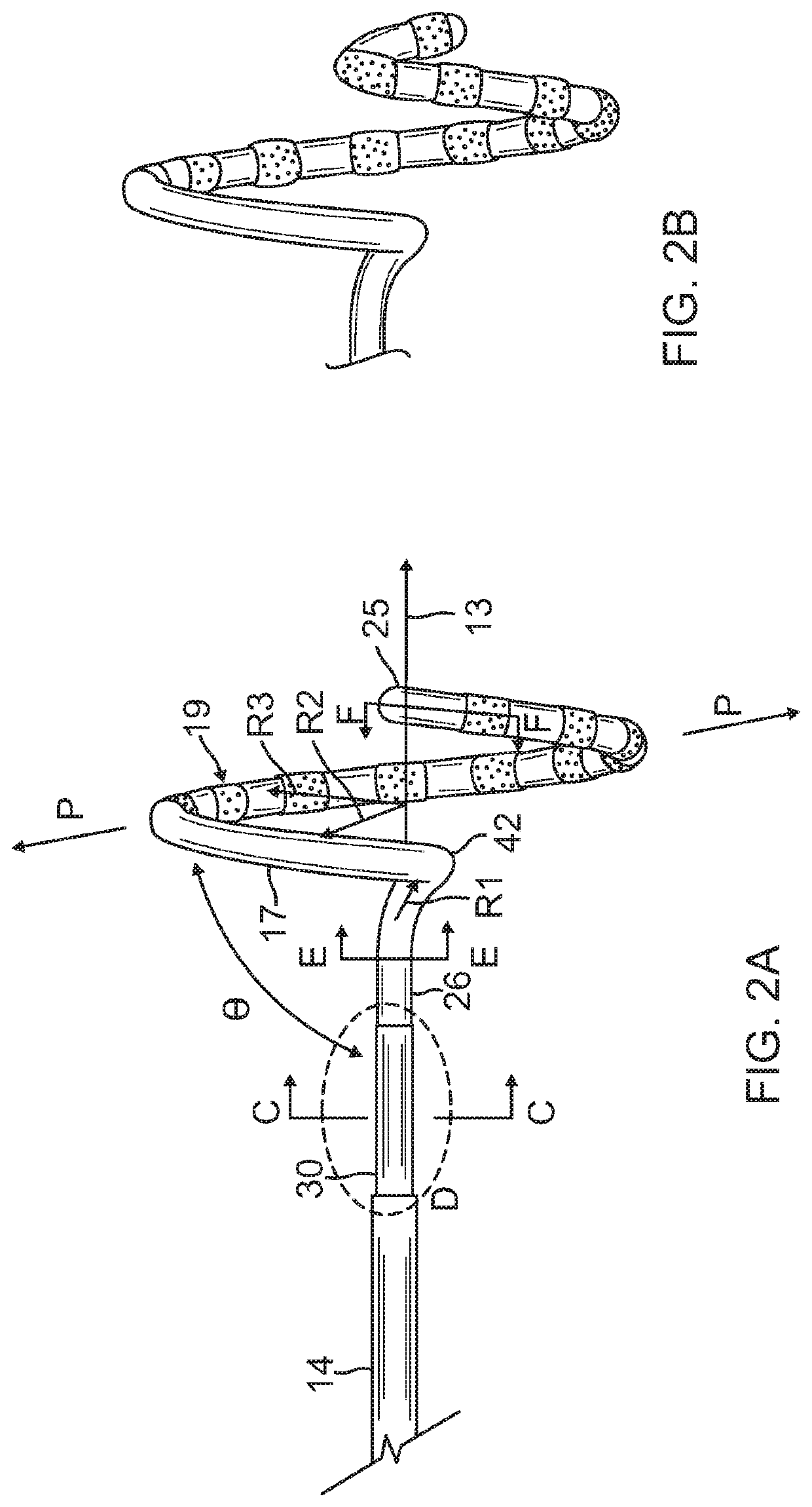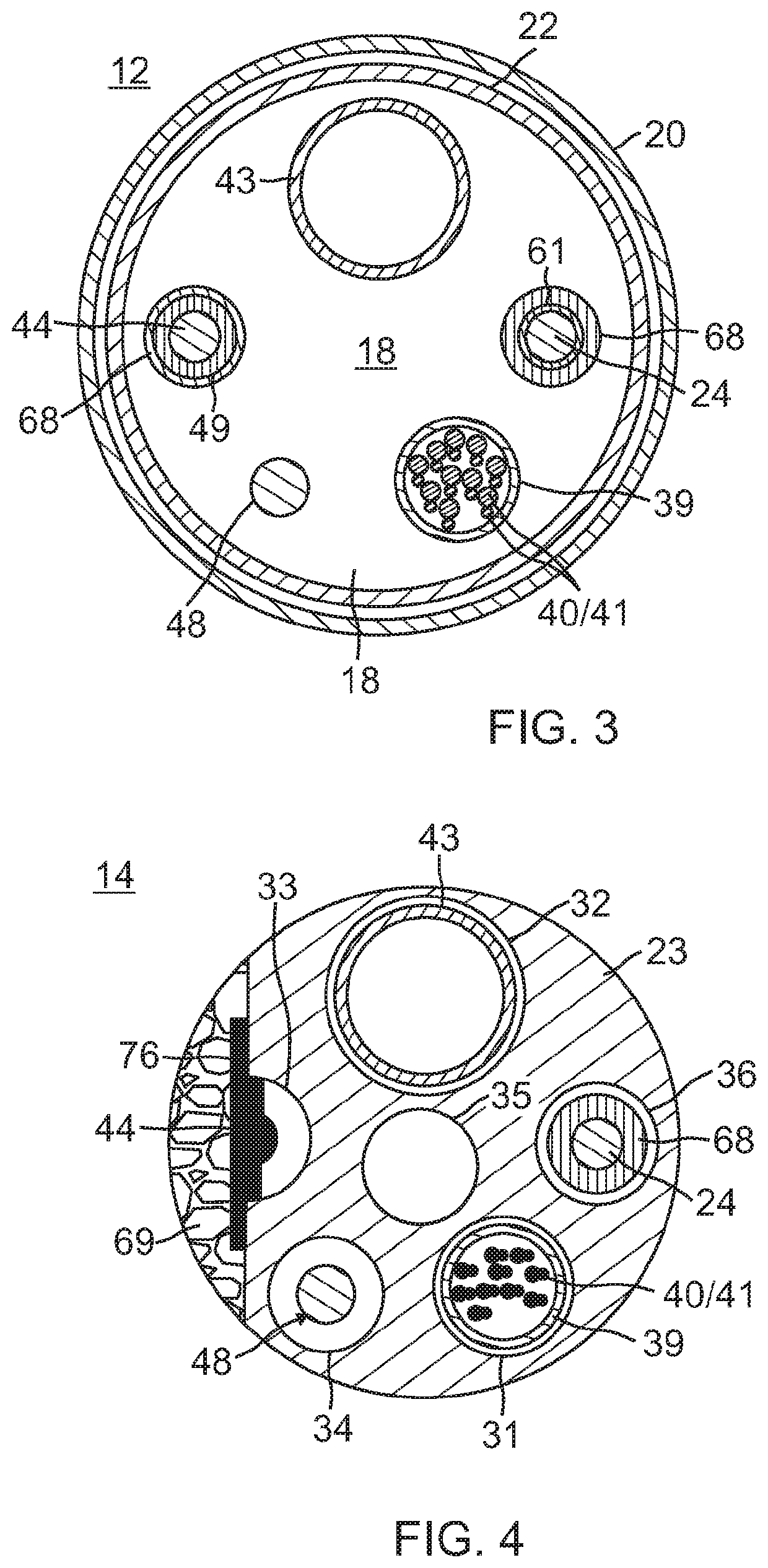Catheter with improved loop contraction and greater contraction displacement
a catheter and loop technology, applied in the field of catheters, can solve the problems of limited contraction and deflection characteristics inability to fit the particular target ostium, and inability to reliably attach the contraction wires of current circular loop catheters, etc., to achieve the effect of improving the contraction and bending radius characteristics, increasing the degree of contraction, and reducing the number of insertions
- Summary
- Abstract
- Description
- Claims
- Application Information
AI Technical Summary
Benefits of technology
Problems solved by technology
Method used
Image
Examples
Embodiment Construction
[0049]Embodiments of the present invention that are described hereinbelow provide probes, such as catheters, with improved arcuate distal electrode-carrying structures, to facilitate maneuvering and positioning in the heart and especially tubular regions of different sizes in a patient's body and different circumferential locations within the tubular regions. Such catheters can be used to produce generally circular or helical ablation paths, as well as sensing electrical activity along a generally curve or helical pattern for electrical potential and anatomical mapping.
[0050]Referring to FIG. 1, a catheter 10 according to the disclosed embodiments comprises an elongated body that may include a flexible insertion shaft or catheter body 12 having a longitudinal axis 13, and an intermediate section 14 distal of the catheter body that can be uni- or bi-directionally deflected off-axis from the longitudinal axis 13. As shown in FIG. 2A, extending from the intermediate section 14 is a res...
PUM
 Login to View More
Login to View More Abstract
Description
Claims
Application Information
 Login to View More
Login to View More - R&D
- Intellectual Property
- Life Sciences
- Materials
- Tech Scout
- Unparalleled Data Quality
- Higher Quality Content
- 60% Fewer Hallucinations
Browse by: Latest US Patents, China's latest patents, Technical Efficacy Thesaurus, Application Domain, Technology Topic, Popular Technical Reports.
© 2025 PatSnap. All rights reserved.Legal|Privacy policy|Modern Slavery Act Transparency Statement|Sitemap|About US| Contact US: help@patsnap.com



